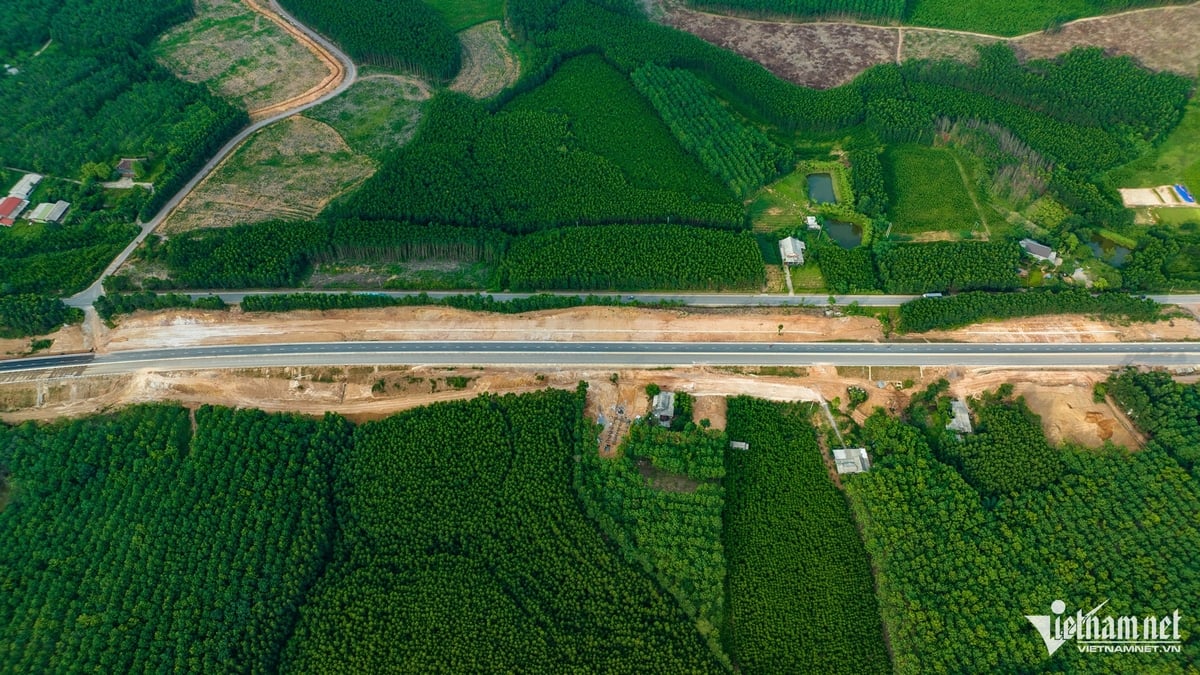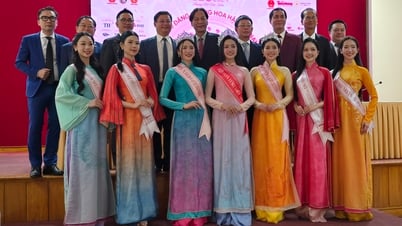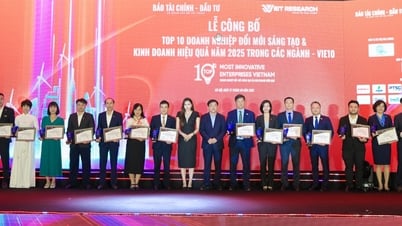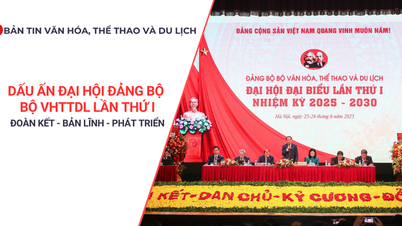 |
| Illustrative photo. (Photo: Hoang Hieu/VNA) |
Vietnam is entering a crucial stage in its digital transformation journey. The draft Law on Digital Technology Industry discussed at the 9th Session of the 15th National Assembly is not only an important step in perfecting the legal framework for an emerging industry, but also contributes to the timely institutionalization of the Party's major policies on innovation, promoting the development of digital technology enterprises, and at the same time creating a foundation for Vietnam to deeply integrate into global technology trends.
Notably, the Draft has institutionalized major policies stated in Resolution No. 57-NQ/TW and Resolution No. 68-NQ/TW of the Politburo . The core contents include: Incentive mechanisms for digital technology enterprises; Development of shared digital infrastructure; Encouragement of innovative startups; Talent training and controlled technology testing.
Get a head start on AI and digital assets
A representative of the Ministry of Science and Technology - the agency in charge of drafting the draft Law on Digital Technology Industry, said that the bill has introduced systematic incentive policies, covering the entire industry development chain, including financial support, infrastructure, corporate tax and import-export tax, land and customs procedures; encouraging investment in training, exemption from work permits, granting 5-year visas, scholarships and personal income tax incentives for experts; supporting investment in research, investment costs in research facilities are included in tax-deductible expenses.
The State invests in essential infrastructure, encourages the private sector to build digital infrastructure and develop concentrated technology zones. Supports the expansion of the digital product market, especially incentives for leasing/purchasing products using state budget capital.
In particular, the semiconductor industry is identified as a strategic sector that will enjoy separate preferential policies, creating competitive advantages and seizing opportunities to shift the global value chain. This is a step that clearly demonstrates Vietnam's initiative in anticipating the fourth industrial revolution.
A notable new point in the draft law is the official inclusion of artificial intelligence (AI) in the regulatory content of the law. AI is identified as a breakthrough tool to improve productivity and national competitiveness. However, this is still a field with many potential risks and there are not many complete legal models in the world.
If the Law on Digital Technology Industry is passed, Vietnam will be one of the few countries in the world that has issued a legal corridor on Artificial Intelligence.
To promptly meet the needs of life, the draft Law has provided principled regulations related to artificial intelligence and assigned the Government to issue detailed, specific regulations necessary and suitable for practice. Therefore, the Draft has chosen a principled, "flexible" approach to the framework regulations in the law, while the Government will issue detailed regulations suitable for practice.
At the same time, the Draft also introduces for the first time the principles of digital asset management, a very new and complex field. In order to promptly meet the practical needs in Vietnam today, the Draft Law initially stipulates some basic contents on digital assets such as definition, classification, and management content.
These are framework and principle regulations and the Government is assigned to provide specific regulations for digital assets in specialized fields in accordance with practical conditions.
The initial regulations revolve around the definition, classification and management of digital assets in a flexible manner. The Government will provide specific regulations for each specialized field. This is an important premise for effective management and at the same time developing the domestic digital asset market.
Controlled testing of digital technology products and services
According to the National Digital Transformation Program, Vietnam aims to become one of the top 30 digital countries in the world by 2030. To realize this goal, the program sets out many key tasks such as: Covering 5G and fiber optic cables nationwide, developing over 100,000 digital technology enterprises and building a workforce of 1.5 million digitally skilled workers. Reshaping industries and public services based on emerging technology platforms is not only a trend, but also a strategic step to help Vietnam break through in the digital age.
The draft Law on Digital Technology Industry is expected to create a legal corridor to promote the development of the digital technology industry with a focus on Vietnamese digital technology enterprises, gradually shifting from assembly and processing to innovation, design, integration, production, and mastery of core technology.
The controlled testing mechanism is one of the breakthroughs of the draft Law to specify the Party's policy in Resolution No. 57. Resolution 68 is built in the direction of the Law providing general regulations on testing including: principles, criteria, authority, rights, responsibilities, protection of users and exemption from liability for cases of risks occurring due to objective reasons... and assigns the Government to specify details.
The draft Law clearly establishes a controlled testing mechanism (sandbox) for products and services applying digital technology. This mechanism includes provisions on implementation principles, selection criteria, authority, legal responsibility, user rights and exemption from responsibility for objective risks in testing.
To ensure legal consistency, the Government is directing the Ministry of Science and Technology to study the possibility of regulating a sandbox mechanism framework in the Law on Science, Technology and Innovation, from which the Government will specify details suitable for each industry and field.
Once passed, the Law on Digital Technology Industry will create a major turning point in promoting the digital economy and digital transformation in Vietnam. With preferential policies, flexible testing mechanisms, a focus on human resource development and international cooperation, this law will not only bring economic benefits but also create positive changes in society, from improving the quality of life to promoting sustainable development. Thereby, it will create a strong driving force for Vietnam to 'rise up' to become one of the leading countries in the field of digital technology in the region and the world./.
Source: https://huengaynay.vn/kinh-te/khoa-hoc-cong-nghe/nhung-diem-moi-cua-du-thao-luat-cong-nghiep-cong-nghe-so-sap-duoc-thong-qua-154641.html







































































































Comment (0)